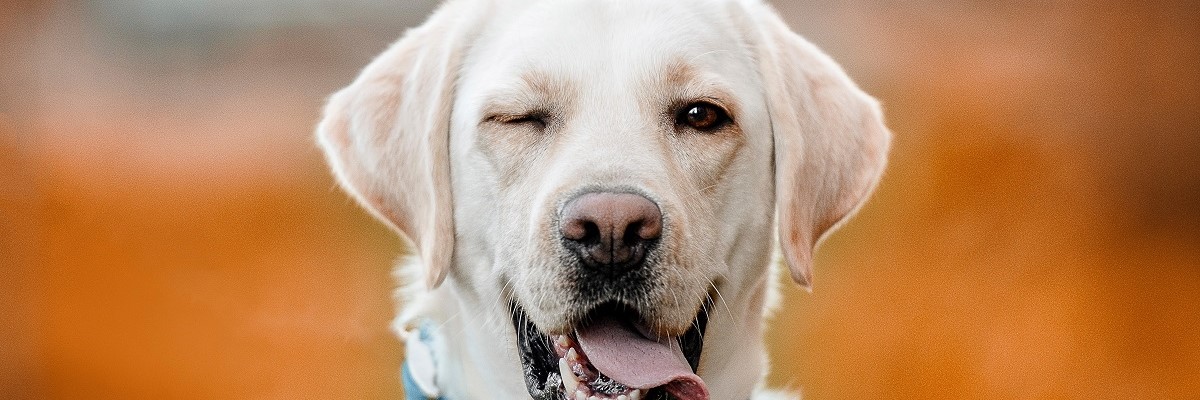Male Labradors should not be bred until they are at least one and a half to two years old. Some of the health tests required for Labradors are not performed until they are at least two years old, which is why a reputable breeder only breeds dogs when they are old enough to breed.
It’s common for Labrador owners to consider whether or not they should spay or breed their dog so that they can have puppies. Many owners do this professionally, but others simply want another dog like the one they already have.
Although it may sound easy to breed a male dog, certain responsibilities and duties are involved. It is up to the female when the best time for mating is, but the success of mating depends upon how fertile and healthy the male dog is.
When Do Male Labradors Reach Sexual Maturity?
Labrador males become fertile around the age of six months. It may take them 12 to 15 months to reach full sexual maturity. As long as your Labrador is in good health, he can even remain sexually active and fertile into old age.
When Is The Best Age To Breed Your Male Labrador?
Breeding your Labrador should occur when your dog is at least two years old. Although some breeds become mature at a younger age, this is seen as the optimal age for mating. A veterinarian must examine female and male Labs before mating. Parents must be in good health in order to produce healthy puppies.
Certain diseases and health issues in Labradors do not manifest until they are two years old. Veterinarians can determine if your Labrador is a good candidate for mating after this age by performing a health check. You should not breed your Labrador if it is older than eight years old. In general, your Lab should be able to keep going at this age as long as it is healthy. A five-year-old would be the oldest age for breeding if this were not the case.
Labrador Health Tests Preparation
Getting your Labrador approved as a stud requires a thorough physical examination by your veterinarian. Before mating, you should rule out health issues such as hip dysplasia and joint problems. Along with their ears and eyes, your Labrador should have a blood test and a urinalysis performed as well.
Make sure that your lab is free of any diseases or disorders. You may also need to perform a genetic test. Genetic testing ensures that the offspring will not inherit the disease when dogs are not fully purebred. By doing so, you can make sure that your Labrador’s ancestry is not affected by inbreeding.
How Do I Know That My Male Labrador Is Fertile?
Your veterinarian can perform specialized fertility tests to determine if your male Lab is fertile in addition to a general examination. In addition to getting your dog tested to determine if it is fertile, you can take other steps.
Check to see if he has reached puberty
When he is too young, he won’t be sexually mature and unable to reproduce. Be sure he’s in good health. He might be affected by a few health issues.
| Infertility or genetic defects in puppies are caused by genetic defects. | Movements that can lead to unsuccessful matings. |
| Damage to the reproductive organs. | Infections or diseases that cause infertility. |
How Many Times Can You Breed Your Labrador?
Male Labradors are perfectly capable of having multiple litters throughout their lives. In some cases, male dogs can mate up to five times in a single day. To ensure high-quality and consistent impregnation, different methods must be utilized. Some breed their studs almost every week, while others only do it several times per year.
Whenever sperm is collected regularly, it is important to give the dog some time between harvests. Therefore, sperm collection should be limited to every few days to ensure consistent quality sperm. Despite this, male dogs can produce good quality sperm every day if they are not regularly bred. This cannot be done for long since the dog will soon run out of sperm.
Before allowing a pet to mate, the following tips should be kept in mind. You may want to consider neutering your dog rather than allowing it to mate if you are not interested in breeding dogs for the purpose of selling pups. The benefits of neutering your dog goes beyond protecting him from prostate cancer and other testicular diseases. He will behave less aggressively, be more affectionate, and be less likely to attack other dogs. It greatly increases the chances of your dog living a longer and happier life if it is healthy.
So, consider the advantage of allowing your dog to mate and whether it would be better to neuter the dog to reduce the likelihood of unnecessary mating and health issues.
Prime Time Best Breeding Time For Labradors?
In addition to what was previously said. The male Labrador has the ability to breed for his entire lifetime. The career of an aging stud should not be ended simply because he is old. Labs should be able to pass on their genetic makeup if they have a healthy genetic makeup. The prostate is prone to problems in older Labradors. As a result, they should have regular examinations by their veterinarian as they age. Infections can sometimes be treated, and declining fertility can be restored. There are also medications for treating pain related to mobility problems, such as arthritis.
As Labradors age, they become more susceptible to infection and illness. Infections may be symptomless at first. Before mating, Labradors should be tested for sexually transmitted diseases, including brucellosis. Even though it does not show symptoms, it can still have devastating effects on puppies. Miscarriages, abortions, and stillbirths can occur as a result of this disorder. Since it is not curable in the majority of cases, preventing exposure to it during a Lab’s breeding years is necessary. Labrador puppies and their litter should receive good veterinary care during the prime of their lives.

Be careful with your young stud Labrador
In the early stages of his career, a painful experience can destroy his motivation to breed for life. If you want him to experience no trauma during mating, make sure you take all the necessary measures.
| When he is a puppy, being around a bossy older female dog may make him think that he is too low in the pecking order to “dominate” them. | The first season or two, mate him with more experienced and cooperative female Labradors. |
| When presenting your male dog to the female dog, make sure she is fully in estrus. | The female dog should go to the Labrador’s home, not the other way around. |
| It is extremely important not to injure your pet’s testicles or private parts since seemingly minor events such as jumping over the fence or squeezing through the cat flap can cause injuries. | He should grow up being used to touching all parts of his body, so he won’t be frightened if that becomes necessary. |
Labrador Breeding Paperwork
When you have completed all your health tests, it is time to fill out all the paperwork. Essentially, it’s about how the Labrador looks and how he behaves. Therefore, you want to ensure that your dog adheres to the breed’s standards.
To mate, a dog must possess the most distinctive characteristics of its breed. Some of these characteristics are physical, while others may be behavioural, depending on the breed. By contacting a breeder club, you can determine if your Labrador meets breed standards.
There’s no requirement to register with a Kennel Club, but it might help other dog owners decide if your Labrador is a good candidate for breeding. To have your dog recognized by a Kennel Club, you will also need to claim ownership of him.


